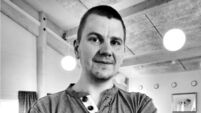Bloody Sunday widow stages inquiry walkout
The widow of a man shot dead on Bloody Sunday walked out of the Saville Inquiry today in protest at measures put in place to protect the identity of a witness.
Eileen Doherty, whose husband Paddy was shot by soldiers, claimed the inquiry had descended into farce as a senior Army witness gave his evidence via video-link from an undisclosed foreign country.













